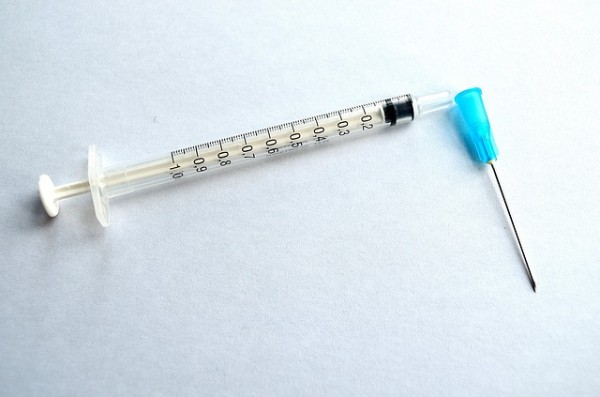Feds Designate Meningitis B Vaccine as "Breakthrough Therapy"

A vaccine for meningitis B has been designated as a "breakthrough therapy" by federal regulators in the United States, meaning that it will be placed on a development track that will speed up the potential approval process.
The vaccine called Bexsero was developed by Novartis AG and is currently available to help prevent the spread of meningitis B in Europe, Canada, and Australia. The "revolutionary" drug has also recently gained the approval of the United Kingdom's Join Committee on Vaccination and Immunization (JCVI) so that it can be made available to 700,000 infants.
According to the United States Centers for Diseases Control and Prevention (CDC), meningitis is a bacterial infection of the meninges -- the membrane that lines the inside of the human skull and encompasses the spinal cord. Infants under one year old are at the highest risk of infection from Meningitis B, especially at five to six months old, making early childhood vaccination availability a necessity for many world officials.
U.S. and U.K. officials however, have been hesitant to approve Bexsero as past data has indicated that due to the disease's extremely low infection rate, an international vaccination effort would not prove cost-effective.
However, last week U.K officials changed their mind about Bexsero, citing research that finds that meningitis B has a one in four chance to leave life-altering adverse effects on infected infants.
Now it appears that U.S. officials are doing the same. According to an announcement made by Novartis, the Food and Drug Administration has given Bexero a "Breakthrough Therapy" designation "to meet the urgent need for a licensed vaccine in the U.S. against unpredictable and devastating meningitis B."
This follows a past FDA decision to definite the unapproved vaccine as an Investigational New Drug in order to provide nearly 30,000 doses of the vaccine to people exposed to meningitis B outbreaks at Princeton University and the University of California Santa Barbara over the last four months.
After this past emergency use of the drug and recent clinical trials have not resulted in any serious of life-threatening adverse effects among the patients, the FDA has decided to expedite the approval process of the drug with its latest designation.
In no way does this mean that the drug is guaranteed FDA approval, but a confident Novartis has announced that the company will file for approval as early as next quarter (Q2 2014).
The Novartis press release was published on April 7.
Apr 07, 2014 02:39 PM EDT




